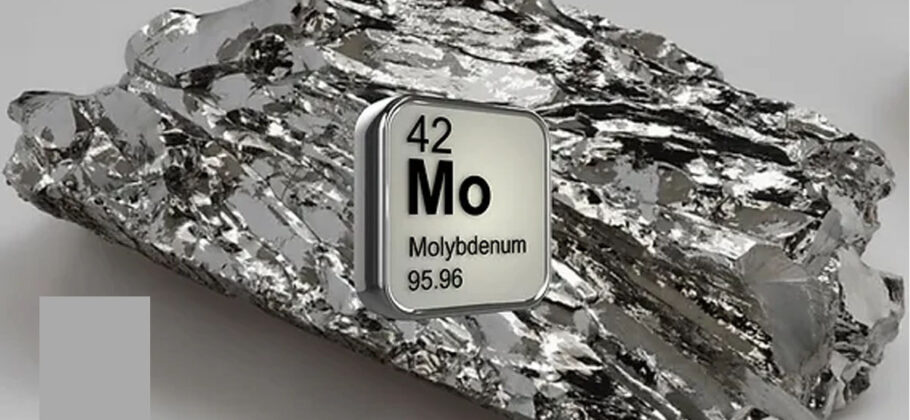China has once again tightened its grip on critical mineral exports, imposing new restrictions on tungsten, tellurium, bismuth, molybdenum, and indium. This move comes just as U.S. President Donald Trump imposed an additional 10% tariff on Chinese goods, escalating an already tense trade war between the world’s two largest economies.
China’s decision is widely seen as a retaliatory measure, underscoring its dominance in global mineral supply chains. As Reuters reported, “China announced sweeping export controls on Tuesday targeting five metals used across defense, clean energy and other industries, minutes after an additional 10% tariff on Chinese goods imposed by U.S. President Donald Trump came into effect.”
The consequences for industries reliant on these minerals—ranging from defense contractors to clean energy manufacturers—could be severe. Prices are likely to spike, supply chains will be disrupted, and Western governments will be forced to accelerate efforts to secure alternative sources. However, for investors, this presents a unique opportunity to capitalize on U.S. companies that are poised to benefit from the global supply shift.
The Five Restricted Metals and Their Strategic Importance
1. Tungsten: Critical for Military and Industrial Applications
- Uses: Armor-piercing ammunition, aerospace components, industrial cutting tools, and electronics.
- China’s Role: China supplies over 80% of the world’s tungsten.
- Investment Play:
- Almonty Industries Inc. (TSX: AII) – This company operates the Sangdong tungsten mine in South Korea, one of the largest outside China, and has long-term supply agreements with U.S. buyers.
- Plansee SE – With U.S. production facilities, this advanced materials manufacturer produces tungsten-based industrial components and is likely to see rising demand.
2. Tellurium: A Pillar of the Solar Industry
- Uses: High-efficiency solar panels, thermoelectric devices, and semiconductors.
- China’s Role: China is the world’s top tellurium supplier.
- Investment Play:
- First Solar (NASDAQ: FSLR) – This U.S.-based solar panel manufacturer uses cadmium telluride (CdTe) technology and could see higher tellurium costs, which may drive increased domestic tellurium sourcing.
- Freeport-McMoRan Inc. (NYSE: FCX) – One of the few U.S. companies producing tellurium as a byproduct of copper refining, positioning it as a key alternative supplier.
3. Bismuth: A Lead-Free Alternative for Electronics and Pharmaceuticals
- Uses: Pharmaceuticals, cosmetics, lead-free soldering, and industrial alloys.
- China’s Role: China controls around 70% of the global bismuth supply.
- Investment Play:
- 5N Plus Inc. (TSX: VNP) – A specialty metals producer that processes bismuth and other critical materials for the electronic and pharmaceutical industries.
- American Elements (Private Company) – This U.S.-based firm processes and distributes specialty metals, including bismuth, and could benefit from increased domestic demand.
4. Molybdenum: Strengthening Steel for Infrastructure and Defense
- Uses: Strengthening steel for construction, pipelines, aerospace, and military vehicles.
- China’s Role: China is a major supplier, but the U.S. has significant domestic production.
- Investment Play:
- Freeport-McMoRan Inc. (NYSE: FCX) – A major U.S. molybdenum producer, supplying industries ranging from steel manufacturing to defense.
- Climax Molybdenum Company (a division of Freeport-McMoRan) – This U.S.-based company operates two major molybdenum mines in Colorado and New Mexico, positioning it as a direct beneficiary of China’s curbs.
5. Indium: A Vital Element in Display Screens and Semiconductors
- Uses: Touchscreens, flat-panel displays, advanced semiconductors, and coatings.
- China’s Role: The U.S. has diversified its indium supply, but China remains a dominant player.
- Investment Play:
- Indium Corporation (Private Company) – One of the few non-Chinese companies specializing in indium-based products for the semiconductor and display industries.
- South Korean Suppliers – Companies in South Korea, such as Korea Zinc Co. Ltd., are significant non-Chinese producers of indium.
How China’s Restrictions Will Impact Global Markets
1. Price Volatility and Supply Chain Disruptions
Past restrictions on critical minerals have resulted in massive price spikes. When China curbed exports of antimony, gallium, and germanium in 2024, antimony prices soared 250%, reaching $40,000 per ton. A European metals trader told Reuters, “We have already sold some small quantities for $40,000. Non-Chinese sellers…will charge more to maximize profits.”
With tungsten, tellurium, and indium now under restriction, similar price surges are likely. Investors should expect supply chain disruptions and rising costs for manufacturers, creating opportunities for non-Chinese producers.
2. A Push for Domestic Mining and Refining
The U.S. and its allies have already been working to reduce their dependence on China for critical minerals, but shifting supply chains takes time.
- Ellie Saklatvala, a senior analyst at Argus, told the South China Morning Post, “In the short term, it will be very difficult for the U.S. to significantly reduce its reliance on China for critical minerals—it usually takes many years and huge investments to develop new supply sources.”
- However, the U.S. government has been expanding investment in domestic mining through subsidies and policy support, which could benefit companies like MP Materials (NYSE: MP), a rare earths producer in the U.S.
3. Canada and Australia as Alternative Suppliers
- Canada has significant molybdenum, tungsten, and indium reserves and could become a primary supplier to the U.S.
- Australia has emerging rare earth and critical mineral projects, with companies like Lynas Rare Earths Ltd. (ASX: LYC) expanding their mining operations.
Investment Strategy: Where to Put Your Money
For investors looking to capitalize on the shifting landscape, here are some key strategies:
- Invest in North American Producers – Companies like Freeport-McMoRan (FCX) and Climax Molybdenum are positioned to benefit as U.S. manufacturers look for domestic sources.
- Look at South Korean and Canadian Alternatives – Companies such as Almonty Industries (AII) (for tungsten) and Korea Zinc (for indium) could see increased demand.
- Solar and Semiconductor Supply Chain Stocks – With tellurium and indium restrictions, firms like First Solar (FSLR) and Indium Corporation could experience rising costs but also gain from domestic sourcing initiatives.
- Rare Earth and Specialty Metals ETFs – Funds like Global X Lithium & Battery Tech ETF (LIT) and VanEck Rare Earth/Strategic Metals ETF (REMX) provide broad exposure to companies involved in critical mineral production.
China’s latest export curbs are more than just a trade retaliation—they are a strategic maneuver that could reshape global supply chains for years to come. For industries reliant on these materials, the shift will be challenging. But for investors, the disruption creates significant opportunities in companies that mine, refine, or import critical minerals outside of China.
By positioning investments in North American miners, alternative suppliers, and key industrial firms, investors can capitalize on rising prices and shifting supply chains—turning China’s restrictions into profitable opportunities.
NP Editor: First of all, this is not investment advice, do your own damned research. Second, the curbs are a political football and may cycle back and forth – a massive risk factor in any investment scenario.





